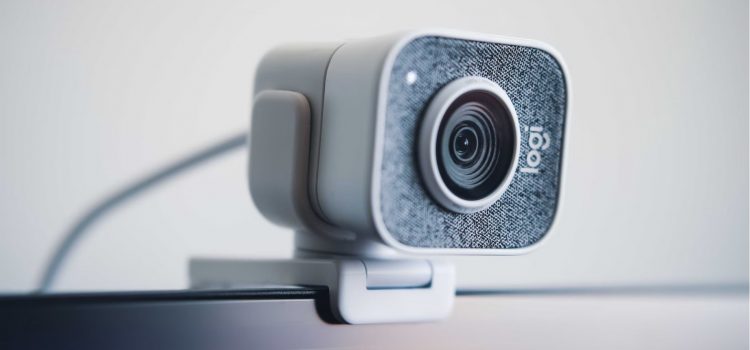
This is a free excerpt from one of Shortform’s Articles. We give you all the important information you need to know about current events and more.
Don't miss out on the whole story. Sign up for a free trial here .
What is bossware? What are the pros and cons of remote employee monitoring software? Is it ethical—or even legal?
The term “bossware” describes the employee monitoring software used by some employers charged with managing remote workforces. Some companies using bossware say it makes things fairer and more productive, but others claim it decreases morale and the productivity benefits are overstated.
Keep reading to learn more about what bossware is, how it’s being used, and its pros and cons.
What Is Bossware?
If you’re working remotely, chances are you’re being monitored. Around 60% of companies with remote workers are monitoring them, and 17% more are thinking about it. This “bossware” (or “tattleware”) industry exploded during the pandemic and continues to grow rapidly, with some estimating that annual sales will increase from $488 million today to $1.7 billion in 2029. In this article, we’ll explain what bossware is by describing its pros and cons from the perspectives of the companies relying on monitoring software and the employees who claim that the software fails to truly capture job performance.
Reasons to Track Employees
Tracking employee time can help everyone understand normal working patterns. Some employees say that trackers help them organize their workdays and stay on task. Caring employers can use the data to prevent employee burnout by tracking indicators of workplace stress such as lateness and poor focus. Tracking data can also support self-advocacy: For example, it might back employees’ claims that they’re spending all day writing emails or attending meetings and don’t get time for deeper work.
Tracking may increase productivity. There’s some evidence that using bossware increases productivity. In one survey, 81% of employers reported immediate productivity increases after implementing the software, and another found productivity increases of between 26% and 32%. Employers also report that the software has helped them to crack down on time theft by showing them which workers are wasting time on the job (“cyberloafing”).
Tracking may make things fairer. Employees who suspect others of coasting say that the software makes things fairer by identifying those who aren’t pulling their weight. It may also increase the objectivity of performance reviews. And employers with clients who pay hourly can use it to make sure clients are getting value for their money—and for the evidence it provides if clients question the bill.
Tracking may be necessary for cybersecurity reasons. Remote workers can pose security risks. Many are using out-of-date versions of Windows and iOS and may not be careful with passwords, antivirus software, or shared WiFi networks. This “poor cybersecurity hygiene” makes them (and the business) potential targets of cybercrime. Tracking software can also catch both deliberate and inadvertent misuse of company information, keeping the company safe from fraud and data leaks.
With all those reasons to track, why isn’t everyone doing it? Here’s why some employers don’t:
Reasons Not to Track Employees
Tracking damages morale. Monitoring has been shown to increase employee stress and decrease job satisfaction. It also weakens trust in workplace relationships and undermines worker autonomy. It’s not surprising, therefore, that monitoring increases employee turnover.
The productivity benefits may be overstated. Though many employers see bossware as a silver bullet for remote work productivity, the reality is more complicated. The productivity findings are mixed at best, with one recent study finding no relationship between monitoring and productivity and another finding a negative relationship. Some of the reported increases should also be taken with a healthy dose of skepticism: The 26%–32% figure was reported by Workpuls, a monitoring software company that was studying its own product.
Employee tracking can backfire. Tracking software can make employees more—not less—likely to break the rules. Employees who know they’re being monitored may take more breaks, ignore directives, dawdle through their work, and cheat on tasks. Monitored employees also figure out ways to game the system: They might use a mouse jiggler, have multiple windows open, use a decoy monitor, figure out the intervals between screenshots, or even find and modify the program’s source code.
Tracking software doesn’t measure the right thing. Tracking software measures time in front of the computer, keystrokes, and onscreen work progress. But bossware is blind to time spent thinking, planning, working with pen and paper, and exercising soft skills like leadership.
There are also some jobs it’s clearly not suited to. One health organization, for example, now registers its social workers as idle when they’re talking with patients or visiting rehab centers, which reduces their salary. In an even more macabre twist, another organization forced its hospice chaplains to earn “productivity points”: 1 point for visiting a dying person; 1¾ points for attending a funeral; ¼ point for calling bereaved family members.
There are privacy concerns. Fourteen percent of employers say they’re monitoring workers without their knowledge. While this is legal in some places, governments are increasingly requiring employers to disclose monitoring.
Bosses also need to be careful about when they choose to check up on employees. If they do it outside of working hours, they face lawsuits. Companies with international workforces can run afoul of country-specific privacy laws: A Dutch employee, for example, sued his American firm in a Netherlands court for requiring him to keep his webcam switched on. He won.

Want to fast-track your learning? With Shortform, you’ll gain insights you won't find anywhere else .
Here's what you’ll get when you sign up for Shortform :
- Complicated ideas explained in simple and concise ways
- Smart analysis that connects what you’re reading to other key concepts
- Writing with zero fluff because we know how important your time is







You’ve made some excellent points. One thing I’d add is that companies must have a written policy disclosing the scope of the monitoring. This ensures that they clearly set workplace privacy expectations for employees.
Here are some tips for writing one & a free workplace monitoring policy template that your readers may find useful:
https://www.currentware.com/blog/workplace-monitoring-policy-template/